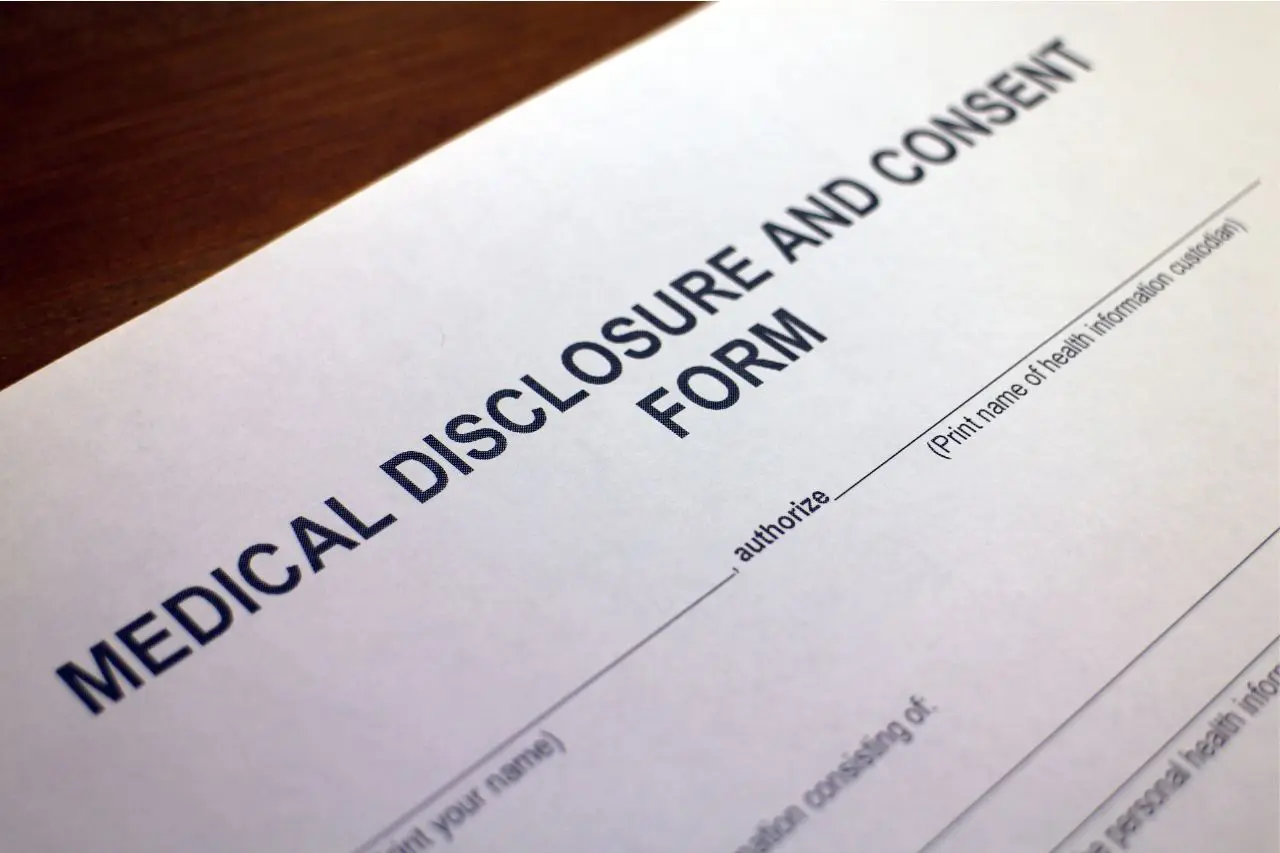The digitization of medical consent forms has tremendous advantages over paper-based documents. Aside from streamlining the consent process, digitized forms offer greater security and efficiency. They’re also much easier to store and access, allowing for faster decision-making and improved patient outcomes.
With the increasing adoption of digitalization in healthcare, it is only natural for the patient consent process to move in the same direction.
Here are the key advantages of using online forms to obtain patient consent:
Table of Contents
8 Benefits of Using Digital Forms to Obtain Patient Consent
Online medical consent forms offers numerous benefits, including:
1. Optimized Efficiency
Digital medical consent forms allow healthcare practitioners to collect and manage patient data quickly and securely. There’s no need for patients to fill out and sign documents by hand. They can do it online from any device. In doing so, they can receive the treatment or test they need on time.
2. Greater Accuracy
Using online forms can significantly reduce the potential for errors, as automated systems can automatically check for incompleteness and discrepancies. Additionally, having an electronic solution eliminates the need for handwritten entries, which can often be illegible and difficult to interpret. There is also the added benefit of quickly accessing and reusing stored data, so there is no need to re-enter information that has already been provided.
3. Enhanced Security
Online medical consent forms offer enhanced security, with patient information securely stored and encrypted in a centralized digital repository. You can also set up additional security layers, such as ID verification, biometric authentication, and custom user permissions. This way, it will be virtually impossible for unauthorized persons to access or manipulate the stored data. Only those with specific access can view or modify the details provided in the consent forms.
4. Seamless Accessibility
Processing forms electronically offers a seamless way of keeping records and tracking patient consent. It minimizes the disruptions caused by filing paper forms. Furthermore, it allows doctors and other healthcare professionals to retrieve consent records quickly. It also gives patients the uninterrupted experience of providing consent regardless of the time or place.

5. Faster Decision Making
With online forms being instantly accessible and fillable, healthcare practitioners can make decisions faster, especially in critical and urgent situations. There is no need to send paperwork back and forth to obtain consent. Everything takes place electronically, which speeds up the process of seeking permission to perform a medical procedure.
6. Improved Tracking and Reporting
Electronic forms offer tracking capabilities, so it’s easier to keep track of everyone who consented to specific treatments and procedures. Having a digital audit trail also reduces the likelihood of patients challenging the validity of the consent obtained. It protects the medical staff against legal claims since it provides a detailed record of everything that occurred.
7. Increased Compliance
Online medical consent forms can help ensure compliance with regulatory requirements such as HIPAA, GDPR, and HITECH. By storing documents securely, healthcare providers can assure patients that their information is being handled responsibly. It’s also easier to detect suspicious activities and mitigate the risks associated with leaked medical consent.
8. Positive Patient Outcomes
Having patients review and complete forms before an appointment can help them make better decisions, resulting in improved health outcomes. With online consent forms for medical treatment, they can easily do so in the comfort of their own homes. This gives them more time to prepare and learn about the risks associated with their chosen treatment plans.

What Is a Medical Consent Form, and Why Is It Important?
A medical consent form is a legal statement that authorizes a medical procedure, test, or treatment. It describes the procedure’s nature and potential risks to help the patient make an informed decision. A duly signed form signifies the patient’s consent and understanding of the risks involved. It also serves as documentation that protects the patient and the healthcare provider in case of a medical dispute.
Signing a consent form also helps assure that all parties involved agree with the planned medical procedure and its potential outcome. Additionally, it allows patients to ask questions or voice any concerns related to treatment. It also provides room to discuss options that may not have been considered beforehand.
How to Create and Manage Medical Consent Forms Online Using Fill
Creating and managing online medical consent forms using Fill is easy. The guide will show you how to have a HIPAA-compliant consent form ready in no time.
- Go to the Fill website and log in to your web dashboard. If you are new to our service, you must create an account before logging in.
- From the web dashboard, go to Tools > Online Forms.
- Click Create Form.
- Either upload a photo of a printed form or create one from scratch. You can also search the template gallery for pre-made consent forms that you can customize according to your needs.
- Add fields to the form that will collect information from the person giving consent, such as their name, signature, and any relevant medical information. Remember to add a signature field to capture the signature of the patient.
- Include all necessary information, such as the purpose of the treatment, risks, and alternatives. When collecting sensitive medical information, see to it that enough security measures are in place to prevent unauthorized access.
- Once the form is complete, save it and share it with the appropriate parties, such as your patients and medical staff.
An Easier Way to Get Patient Consent
Digitizing medical consent forms has proven to be a major step forward in streamlining the consent process. Not only does it help in obtaining consent rapidly, but it also aids in maintaining patient privacy.
With our cloud-based platform, you can create documents, automate tasks, and track patient responses efficiently.
Create an account today to experience the full range of benefits that our electronic signature service offers.




